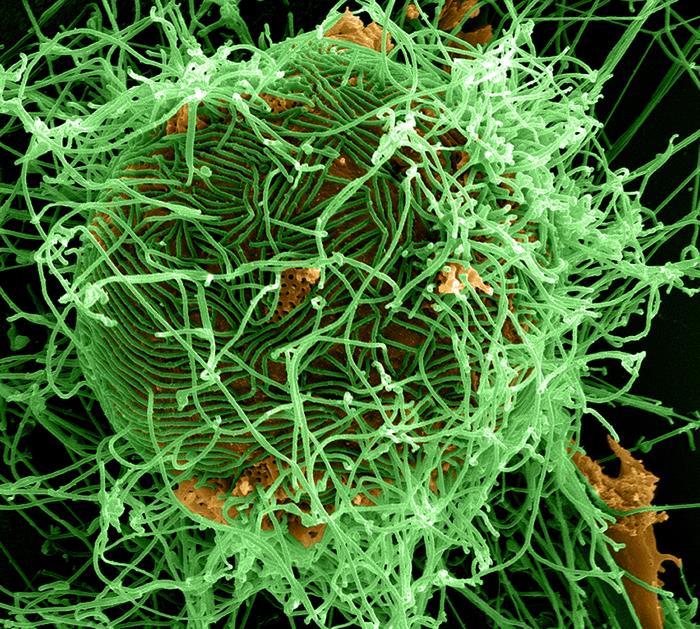Lab tests in Texas and at the US Centers for Disease Control and Prevention (CDC) today confirmed Ebola virus disease (EVD) in a man from Liberia who is isolated in a Dallas hospital, the first travel-related case to be detected outside of West Africa's outbreak region.
At a media briefing today, CDC Director Tom Frieden, MD, MPH, said the top priorities are providing the best care possible for the patient and identifying all people who had contact with him while he was sick.
"The bottom line is I have no doubt that we will control this importation," he said, emphasizing that US hospitals have strong infection control practices and strong core public health capacities, which include tracing of people who come in contact with patients. Frieden added that good contact tracing practices helped curb the impact of similar travel-linked cases in two African nations, Nigeria and Senegal, described in two CDC reports today (see related CIDRAP News story).
"While it is not impossible that there could be additional cases associated with this patient in the coming weeks, I have no doubt that we will contain this," Frieden said.
However, he warned that similar exported cases are likely to continue as long as disease levels are high in West Africa's hot spots: Liberia, Sierra Leone, and Guinea.
Symptoms began Sep 24
Yesterday, officials at Texas Health Presbyterian Hospital in Dallas announced that a patient with symptoms and a travel history suggestive of EVD was being treated in isolation and that tests were under way, with results expected today.
Frieden said the patient, who is in the United States visiting family, didn't have a fever or other symptoms when he was screened at the airport in Liberia on Sep 19 when he departed for the United States. He arrived the next day.
The man's symptoms began on Sep 24, and he sought care 2 days later. He was admitted to the hospital on Sep 28. He is critically ill and receiving intensive care treatment. Frieden said the man won't be moved to another facility.
"Any hospital that can do isolation can do isolation for Ebola," he said, adding that five patients in the United States have been treated for other viral hemorrhagic illnesses over the past decade, and no transmission has occurred.
Discussions are under way with the hospital and the patient's family about possible use of experimental therapies, if supplies are available, Frieden said.
David Lakey, MD, commissioner with the Texas Department of State Health Services (TDSHS), said a state public health laboratory in Austin has a special team that is certified to do Ebola testing. He added that early this afternoon polymerase chain reaction tests were positive for the disease, as was testing at the CDC.
Contact tracing
So far there are no other suspected cases, and public health officials from Dallas County are attempting to identify people who had contact with the patient while he was sick. Zachary Thompson, MA, director of Dallas County Health and Human Services (DCHHS), said contact tracing and information collection began immediately. Patients identified as contacts will be monitored for fever for 21 days,
Frieden said the patient wasn't sick on the airplane and his fellow air travelers aren't considered at risk for the disease, which he said can spread only when patients are having symptoms and through direct contact with body fluids.
Contact tracing will cast a wide net, identifying even those who had low-risk exposure to the patient, he said. People at highest risk are likely to be a handful of family members and a few other community members who had contact with the patient from the day he started having symptoms to the day he was admitted to the hospital.
Lakey said a CDC epidemiology team is on its way to Texas to assist with contact tracing and the outbreak investigation. "We're working through this together," he said.
Edward Goodman, MD, an epidemiologist at Texas Health Presbyterian, described the facility as a large community hospital with a robust infection control department.
"We've had a plan in place for some time now. The week before the patient presented we had a meeting with stakeholders. We were prepared to deal with this," he said.
See also:
Sep 30 CDC press release
Sep 30 TDSHS press release
Sep 30 DCHHS statement
Sep 30 Texas Health Ebola Q and A

















